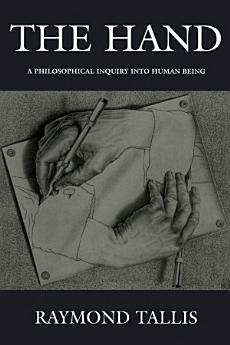Hand: A Philosophical Inquiry into Human Being
Aug 2019 · Edinburgh University Press
Ebook
368
Pages
family_home
Eligible
info
reportRatings and reviews aren’t verified Learn More
About this ebook
What are the origins of human difference? The Hand, which is the first part of a bold philosophical inquiry into the nature of the difference between human beings and other animals, argues that it is the result of a complex sequence of events which began several million years ago with the evolution of the human hand.Possession of a fully developed hand profoundly transformed the relationship of the human being to its own body, thus altering the relationship between humans and the natural world. The interaction of the hand with the rest of the body brought about self-consciousness and laid the foundations for the unique sense of agency that is experienced by humans. Crucially, the hand inspired the tool-use that has come to dominate human life and which has led to the emergence of the complex symbolic systems - most importantly language - that underpin civilisation.The book also celebrates the hand in human life: the almost miraculous complexity of its manipulative, exploratory and communicative functions. Raymond Tallis combines philosophical reflection with a light-hearted look at gestures, the role of each finger, the origins of numbers - and the case for and against what he names 'handkind'.The Hand is the first of three volumes. The other titles are I Am: A Philosophical Inquiry into First-Person Being and The Knowing Animal: A Philosophical Inquiry into Truth and Knowledge.
About the author
Raymond Tallis is Professor of Geriatric Medicine at the University of Manchester and Fellow of the Academy of Medical Sciences. Over the last 15 years he has published extensively outside the field of medicine. There have been three books which mount a critique of post-structuralist theory: Not Saussure: A Critique of Post-saussurean Literary Theory (Macmillan, 2nd edn, 1995), In Defence of Realism (Arnold & University of Nebraska Press, 2nd edn, 1998) and Theorrhoea and After (Macmillan, 1998). He has also published four books in the philosophy of mind: The Explicit Animal: A Defence of Human Consciousness (Macmillan, 1991), The Pursuit of Mind (co-edited with Howard Robinson, Carcanet, 1991), Psycho Electronics (Ferrington, 1994) and On the Edge of Certainty and Other Essays (Macmillan, 1999). Further books include Newton's Sleep: The Two Cultures and the Two Kingdoms (Macmillan, 1995), Enemies of Hope: A Critique of Contemporary Pessimism (Macmillan, 1997) and A Conversation with Martin Heidegger (Macmillan (Palgrave), 2002). An anthology of his theoretical writing - The Raymond Tallis Reader, edited by Michael Grant - was published by Macmillan (Palgrave) in 2000. He was awarded the degree of Doctor of Letters (hon causa) at the University of Hull in 1997 for his non-medical writings and the degree of Doctor of Letters (hon causa) at the University of Manchester in 2003 for 'contributions to literary theory and our understanding of human consciousness'. The Knowing Animal is the final volume in the trilogy of books for EUP which began with The Hand and continued with I Am.
Rate this ebook
Tell us what you think.
Reading information
Smartphones and tablets
Install the Google Play Books app for Android and iPad/iPhone. It syncs automatically with your account and allows you to read online or offline wherever you are.
Laptops and computers
You can listen to audiobooks purchased on Google Play using your computer's web browser.
eReaders and other devices
To read on e-ink devices like Kobo eReaders, you'll need to download a file and transfer it to your device. Follow the detailed Help Center instructions to transfer the files to supported eReaders.








